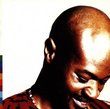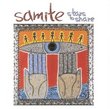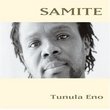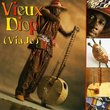| All Artists: Vieux Diop Title: Afrika Wassa Members Wishing: 0 Total Copies: 1 Label: Triloka Records Original Release Date: 8/22/2000 Release Date: 8/22/2000 Album Type: Import Genres: Folk, International Music, Pop Styles: Traditional Folk, Africa Number of Discs: 1 SwapaCD Credits: 1 UPC: 744447806923 |
Search - Vieux Diop :: Afrika Wassa
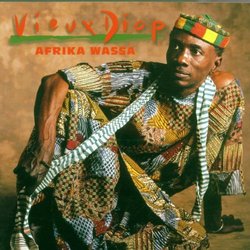 | Vieux Diop Afrika Wassa Genres: Folk, International Music, Pop
Vieux Diop, who began his musical career many years ago in the same Senegalese band as Youssou N'Dour, has lived in the U.S. since the early '80s, and the tone of his third album, Afrika Wassa, reflects the cultural meltin... more » ![header=[] body=[This CD is available to be requested as disc only.]](/images/attributes/disc.png?v=a4e11020) ![header=[] body=[This CD is available to be requested with the disc and back insert.]](/images/attributes/disc_back.png?v=a4e11020) ![header=[] body=[This CD is available to be requested with the disc and front insert.]](/images/attributes/disc_front.png?v=a4e11020) ![header=[] body=[This CD is available to be requested with the disc, front and back inserts.]](/images/attributes/disc_front_back.png?v=a4e11020) |
Larger Image |
CD DetailsSynopsis
Amazon.com Vieux Diop, who began his musical career many years ago in the same Senegalese band as Youssou N'Dour, has lived in the U.S. since the early '80s, and the tone of his third album, Afrika Wassa, reflects the cultural melting pot that's now his home. Its heartbeat is ineffably African, as on the glorious vocal harmonies of "Manko," but, like America, it pulls from everywhere, drawing in not only Diop's kora, which is beautifully displayed on "Mom's Jam," but also the Celtic fiddle of Eileen Ivers. Some projects that are so all-inclusive can get lost, but there's a tight focus to Diop's vision, whether it's the halam that forms the basis of "Pourquoi" or the bouncy light groove of "Sin Lo-Lo." The writing, too, is always fresh and incisive, with the arrangements framing the engaging melodies rather than overwhelming them; all instrumental egos are subsumed in the song. This record might have been five years coming, but it's worth the wait. --Chris Nickson Similar CDs
|
CD ReviewsAwesome Midwest Book Review | 12/21/2000 (5 out of 5 stars) "The best African CD I have ever heard. The Songs, the singing, the musicians, and the recording are all as good as it gets. You don't have to love African music to love this cd." A splendid addition to multicultural music collections. Midwest Book Review | Oregon, WI USA | 09/04/2000 (5 out of 5 stars) "Afrika Wassa features eleven songs presenting a joyous sonic experiences reflecting Vieux Diop's grace, charm, evocative vocals, and infectious rhythms. lyrics are sung in French, Senegalese and English with the words an integral part of the overall texture of the instrumental sounds. This superbly crafted and recorded introduction to West African music provides a welcome and thoroughly entertaining listening experience. Afrika Wassa is a splendid addition to personal and community library multicultural music CD collections." Afrika Wassa Arthur Shuey | Wilmington, NC USA | 01/30/2006 (4 out of 5 stars) "Afrika Wassa
Vieux Diop Triloka Records TR8069-2 His name is pronounced "Via Jo." Internationally, this Senegalese singer is a respectable competitor to James Brown for the title of "Soul Brother #1." If most Americans are going to have problems understanding the words when the tri-lingual Diop decides to use French or Senegalese, it's not going to be much more trouble than translating James Brown's English. If you're dotty about the words, they're in English in the liner notes. This is the kind of modern African music that one might today dub "Paul Simon Lite." In addition to the basic rock instruments, there's a lot of percussion, strong, high backing vocals, a little thumb piano and a strong separation between lead and rhythm sections within the band. Vocal work is impassioned, and it is clear that Mr. Diop cares a great deal about each of the eleven topics he addresses in song on Afrika Wassa, which range from Mouille (Sweat) to Lepto Feyto (The Harvest) to Ti Gui(Surely). It's interesting that "Afrika Wassa" translates into "new Africa." Music has a way of reminding us of all of the foundations of the American culture we live in. "Wassa" has to be "whassup" as clearly as the stringed instrument made by attaching a neck to a large, covered tortoise shell known as a "banjer" in the Wolof language is our "banjo," as clearly as the Wolof "hepi kat," meaning "one who has had his eyes opened," became the "hip cat" of prohibition era jazz. It's not all that foreign. Buying records like Afrika Wassa is just going through a different door to get to the same place. Try it." |

 Track Listings (11) - Disc #1
Track Listings (11) - Disc #1